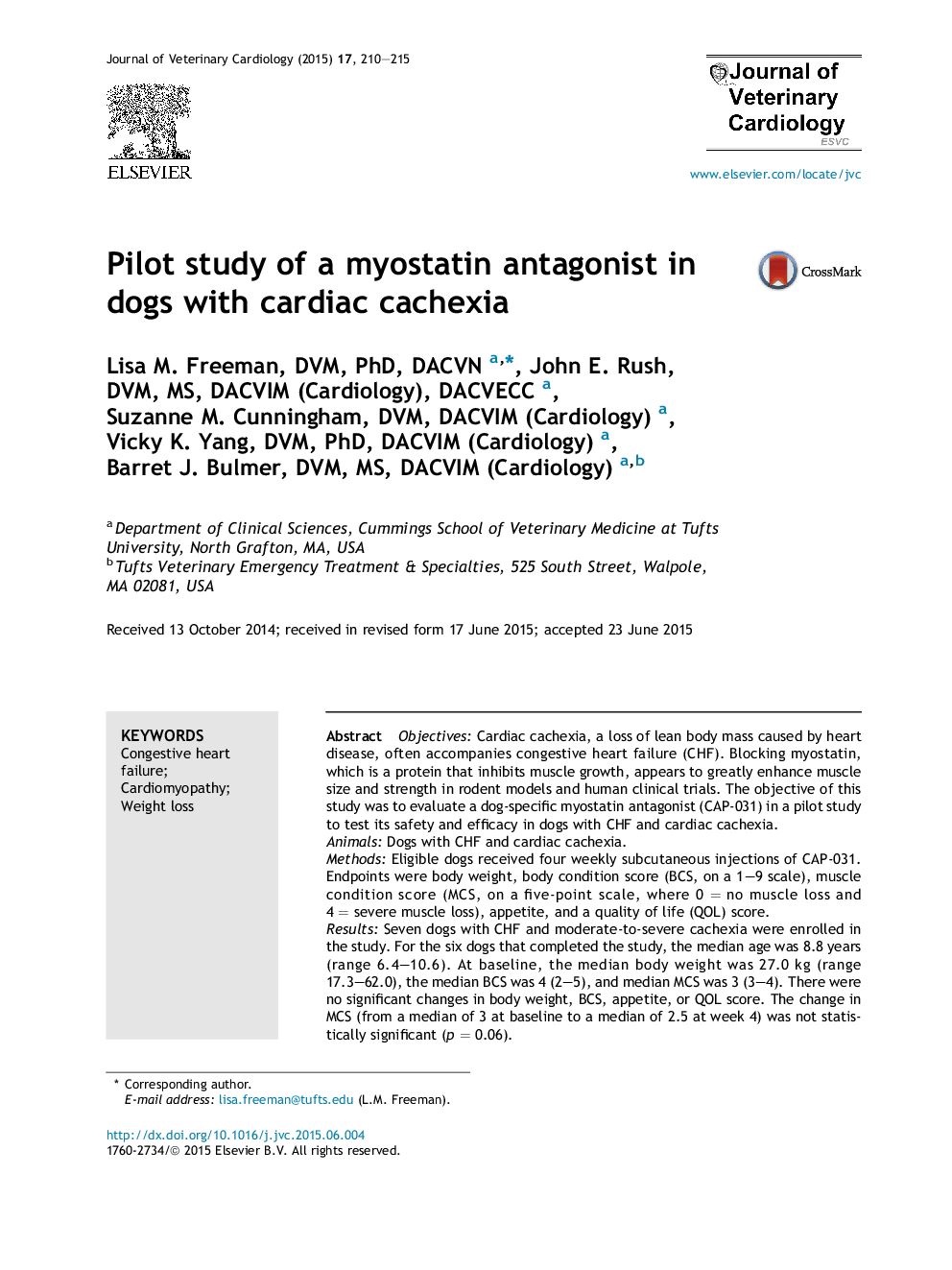| Article ID | Journal | Published Year | Pages | File Type |
|---|---|---|---|---|
| 2400047 | Journal of Veterinary Cardiology | 2015 | 6 Pages |
ObjectivesCardiac cachexia, a loss of lean body mass caused by heart disease, often accompanies congestive heart failure (CHF). Blocking myostatin, which is a protein that inhibits muscle growth, appears to greatly enhance muscle size and strength in rodent models and human clinical trials. The objective of this study was to evaluate a dog-specific myostatin antagonist (CAP-031) in a pilot study to test its safety and efficacy in dogs with CHF and cardiac cachexia.AnimalsDogs with CHF and cardiac cachexia.MethodsEligible dogs received four weekly subcutaneous injections of CAP-031. Endpoints were body weight, body condition score (BCS, on a 1–9 scale), muscle condition score (MCS, on a five-point scale, where 0 = no muscle loss and 4 = severe muscle loss), appetite, and a quality of life (QOL) score.ResultsSeven dogs with CHF and moderate-to-severe cachexia were enrolled in the study. For the six dogs that completed the study, the median age was 8.8 years (range 6.4–10.6). At baseline, the median body weight was 27.0 kg (range 17.3–62.0), the median BCS was 4 (2–5), and median MCS was 3 (3–4). There were no significant changes in body weight, BCS, appetite, or QOL score. The change in MCS (from a median of 3 at baseline to a median of 2.5 at week 4) was not statistically significant (p = 0.06).ConclusionsThe myostatin antagonist appeared to be well tolerated in most dogs. Earlier identification of cachexia is important, and randomized, controlled trials of myostatin antagonists or other drugs to treat cardiac cachexia are needed.
